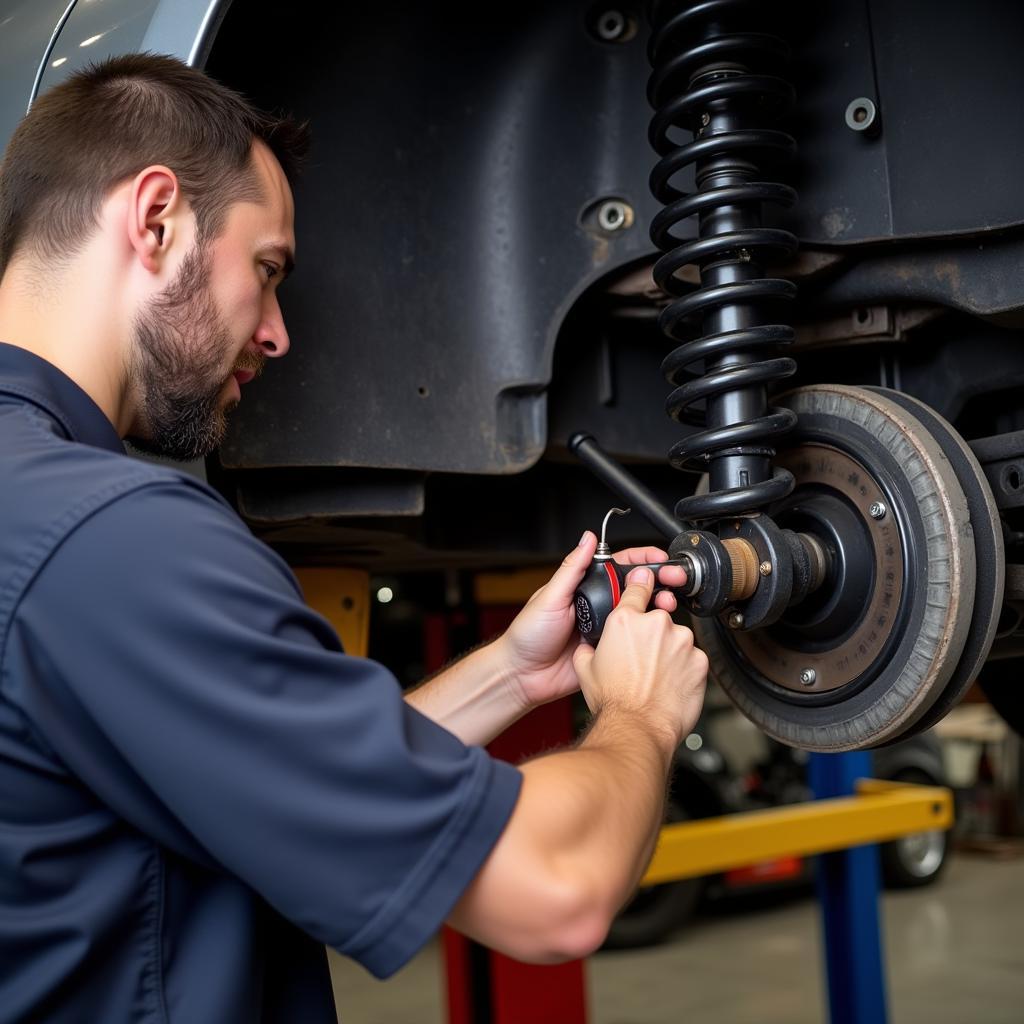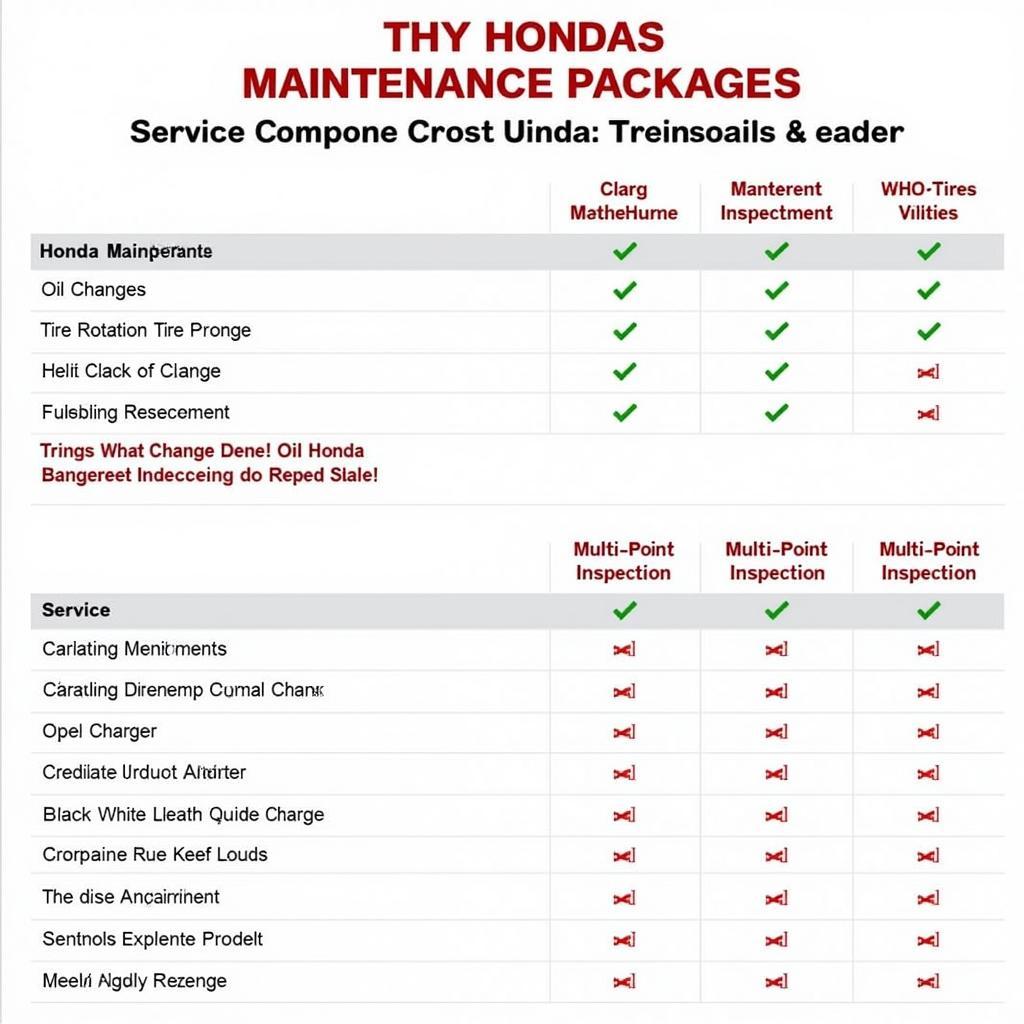A shaking steering wheel can be a nerve-wracking experience, signaling anything from a minor annoyance to a serious safety concern. Understanding the root cause is crucial for addressing the issue effectively and ensuring a safe and comfortable driving experience. This article will delve into the various steering problems that can cause your car to shake, providing you with the knowledge to diagnose the issue and take appropriate action.
Similar to car axle problem, a shaking steering wheel can be a symptom of a bigger issue. Let’s explore the possible culprits.
Common Causes of Steering Wheel Shake
Several mechanical issues can trigger steering wheel vibrations. These range from simple imbalances to more complex problems with your car’s suspension or steering system.
Tire Problems
One of the most frequent causes is tire imbalance. Over time, tire wear and tear can cause uneven weight distribution, leading to vibrations that intensify at higher speeds. Similarly, a bent wheel, a common occurrence after hitting a pothole, can also cause shaking. Damaged tires, including bulges or uneven tread wear, can also contribute to this problem.
 Tire Imbalance Leading to Steering Wheel Vibrations
Tire Imbalance Leading to Steering Wheel Vibrations
Brake Issues
Warped brake rotors are another common culprit. The rotors can become distorted due to excessive heat, resulting in a pulsating sensation in the steering wheel, especially when braking. Sticking brake calipers can also cause similar symptoms.
Suspension and Steering System Issues
Problems within the suspension and steering system, such as worn-out tie rod ends, ball joints, or control arms, can lead to a shaking steering wheel. These components are crucial for maintaining proper wheel alignment and stability. A failing power steering pump can also introduce vibrations.
Similar to axle problems in cars, suspension issues can severely impact your car’s handling and safety.
Diagnosing the Problem: How to Pinpoint the Cause
Diagnosing the cause of steering wheel shake often requires a systematic approach.
Check Your Tires
Start by inspecting your tires for visible signs of damage, uneven wear, or bulges. Check the tire pressure as well. If you suspect an imbalance or bent wheel, consult a tire specialist for balancing or wheel repair.
Inspect Your Brakes
If the shaking intensifies when braking, warped rotors or sticking calipers are likely suspects. Have a mechanic inspect your brake system.
Examine Your Suspension and Steering System
Checking for play in the steering wheel and unusual noises when turning can indicate issues with the tie rod ends, ball joints, or other steering components. A professional mechanic should inspect these components thoroughly.
 Mechanic Inspecting Car Suspension
Mechanic Inspecting Car Suspension
Just like when you are stressed about car problems, it’s essential to seek professional help when needed.
When Does the Shaking Occur?
Paying attention to when the shaking occurs can provide valuable clues. Shaking at higher speeds often points to tire problems, while shaking during braking suggests brake issues. Shaking at lower speeds or while turning might indicate suspension or steering problems.
This is similar to how you would how to diagnose car problems based on symptoms. Identifying the specific conditions under which the problem occurs helps narrow down the possible causes.
Preventing Steering Wheel Shake
Regular maintenance is key to preventing many of the issues that cause steering wheel shake.
- Regular Tire Rotations and Balancing: Rotating and balancing your tires every 5,000-7,500 miles can prevent uneven wear and maintain balance.
- Brake Inspections: Regular brake inspections can identify potential problems with rotors and calipers before they cause significant issues.
- Suspension and Steering System Checks: Periodic inspections of the suspension and steering system can detect wear and tear in critical components.
Conclusion
A shaking steering wheel should never be ignored. Addressing the underlying cause promptly ensures your safety and prevents further damage to your vehicle. By understanding the potential causes and following the diagnostic tips outlined in this article, you can effectively resolve the issue and enjoy a smooth and safe driving experience. If you’re unsure about any aspect of diagnosing or repairing your car, don’t hesitate to contact a qualified mechanic for assistance. Connect with AutoTipPro at +1 (641) 206-8880 or visit our office at 500 N St Mary’s St, San Antonio, TX 78205, United States. We’re here to help you keep your car in top condition.
Similar to axle problem on car, addressing steering problems early can save you time and money.





Leave a Reply